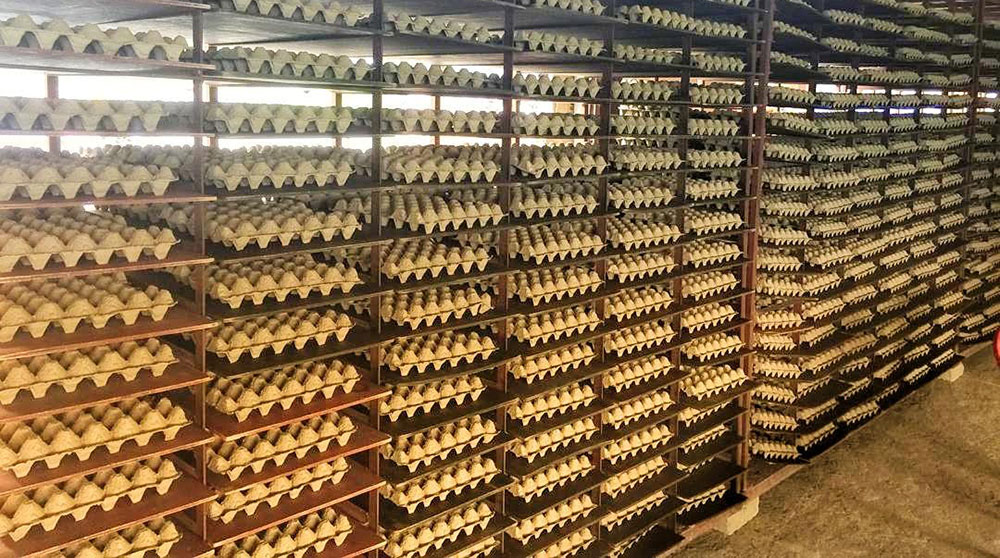Neten Dorji
Samdrupjongkhar—Tshering Tobgay, a 50-year-old entrepreneur, has turned a simple idea into a thriving business.
After observing a surging demand for egg trays with the rising number of poultry farms across six eastern dzongkhags, he ventured into producing eco-friendly egg trays from waste.
The idea took root after Tshering Tobgay spent eight years dealing in scrap. He is the proprietor of Druk Scrap Dealer located in Samdrupjongkhar upper town.
In 2017, he noticed the difficulties poultry farmers faced due to a shortage of egg trays, which were often imported from India. “Poultry farmers were importing from India, including second-hand trays, which brought in poultry diseases along with them. Additionally, it was expensive,” he explained.

“My mission is to recycle waste into egg trays and address two issues at once – the waste problem and the shortage of quality egg trays.”
Supported by the Bank of Bhutan’s Priority Sector Lending scheme, Tshering Tobgay established Druk Egg Tray Manufacturing Unit in 2018 with the goal to produce high-quality egg trays while minimising waste.
The total establishment cost of the factory was Nu 10.5 million, of which Nu 6.35 million was loaned from Bank of Bhutan through the Priority Sector Lending scheme.
The factory, with seven employees, recycles nearly 90 percent of the collected waste, including cloth, plastics, and various types of paper and cardboard.
The factory has a capacity to produce up to 4,000 trays a day though it currently manufactures around 3,000 trays daily. “Depending on the demand, production capacity can be increased,” he said.
This production helps meet the needs of poultry farmers in rural areas, offering a locally produced solution at a competitive price.
A new tray costs Nu 5 at his factory, compared to slightly cheaper, lower-quality trays from India.
The unit earned between Nu 60,000 to Nu 70,000 from the sale of egg-trays.
“I observed the market demand and realised the opportunity to become an entrepreneur. My focus is on supporting rural poultry farmers and contributing to rural progress,” Tshering Tobgay said.
His factory sources waste from schools, banks, and other institutions across the eastern dzongkhags.
“Waste is valuable,” he said, encouraging local schools and institutions to contact him for their paper waste disposal needs.
He said that if poultry farmers and egg suppliers buy egg trays from him, it would minimise import of egg trays from India as well as poultry diseases.
“Poultry farmers from eastern Dzongkhags also need not travel to India to buy egg trays now,” he said.


